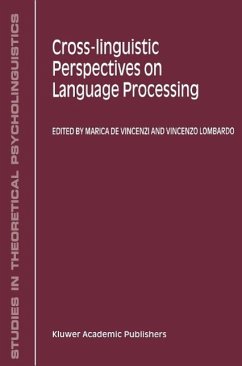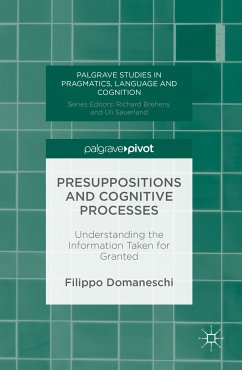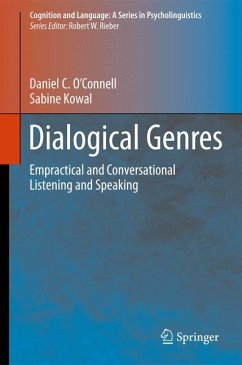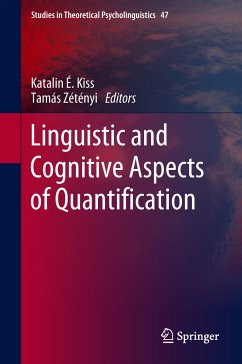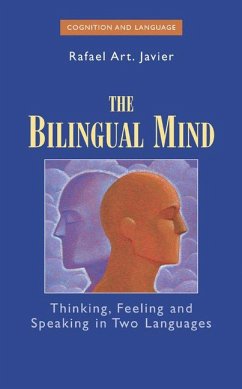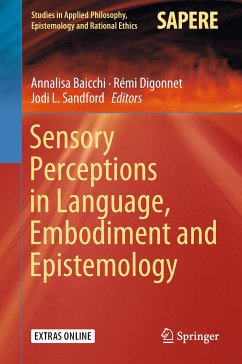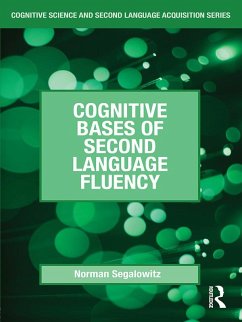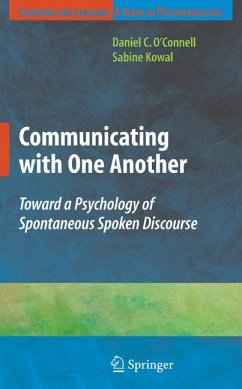
Communicating with One Another (eBook, PDF)
Toward a Psychology of Spontaneous Spoken Discourse
Versandkostenfrei!
Sofort per Download lieferbar
72,95 €
inkl. MwSt.
Weitere Ausgaben:

PAYBACK Punkte
36 °P sammeln!
In contrast to traditional approaches of mainstream psycholinguists, the authors of Communicating with One Another approach spontaneous spoken discourse as a dynamic process, rich with structures, patterns, and rules other than conventional grammar and syntax. Daniel C. O'Connell and Sabine Kowal thoroughly critique mainstream psycholinguistics, proposing instead a shift in theoretical focus from experimentation to field observation, from monologue to dialogue, and from the written to the spoken. They invoke four theoretical principles: intersubjectivity, perspectivity, open-endedness, and ver...
In contrast to traditional approaches of mainstream psycholinguists, the authors of Communicating with One Another approach spontaneous spoken discourse as a dynamic process, rich with structures, patterns, and rules other than conventional grammar and syntax. Daniel C. O'Connell and Sabine Kowal thoroughly critique mainstream psycholinguistics, proposing instead a shift in theoretical focus from experimentation to field observation, from monologue to dialogue, and from the written to the spoken. They invoke four theoretical principles: intersubjectivity, perspectivity, open-endedness, and verbal integrity. Their analyses of historical and original research raise significant questions about the relationship between spoken and written discourse, particularly with regard to transcription and punctuation. With emphasis on political discourse, media interviews, and dramatic performance, the authors review both familiar and unexplored characteristics of spontaneous spoken communication, including: (1) The speaker's use of prosody. (2) The functions of interjections. (3) What fillers do for a living. (4) Turn-taking: Smooth and otherwise. (5) Laughter, applause, and booing: from individual listener to collective audience. (6) Pauses, silence, and the art of listening.
The paradigm shift proposed in Communicating with One Another will interest and provoke readers concerned about communicative language use - including psycholinguists, sociolinguists, and anthropological linguists.
The paradigm shift proposed in Communicating with One Another will interest and provoke readers concerned about communicative language use - including psycholinguists, sociolinguists, and anthropological linguists.
Dieser Download kann aus rechtlichen Gründen nur mit Rechnungsadresse in A, B, BG, CY, CZ, D, DK, EW, E, FIN, F, GR, HR, H, IRL, I, LT, L, LR, M, NL, PL, P, R, S, SLO, SK ausgeliefert werden.




